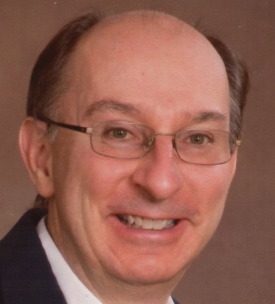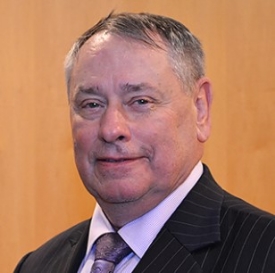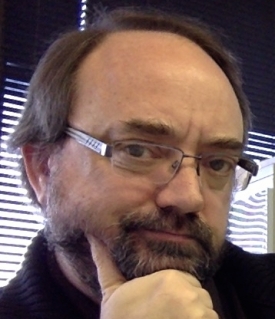I’ve spent part of each day recently working on a short presentation I’ll be giving at the Tennessee Valley Interstellar Workshop, coming up in early October. I like this year’s motto — “Step by Step: Building a Ladder to the Stars” — because it picks up on a theme I’ve cited here before, the maxim by Lao Tzu that “You accomplish the great task by a series of small acts.”

Despite its regional name, TVIW now draws speakers from all over the world. Co-founder Les Johnson encapsulates the idea behind the sessions, emphasizing the workshop concept:
“The Tennessee Valley Interstellar Workshop is an opportunity for relaxed sharing of ideas in directions that will stimulate and encourage Interstellar exploration including propulsion, communications, and research. The ‘Workshop’ theme suggests that the direction should go beyond that of a ‘conference’. Attendees are encouraged to not only present intellectual concepts but to develop these concepts to suggest projects, collaboration, active research and mission planning. It should be a time for engaging discussions, thought-provoking ideas, and boundless optimism contemplating a future that may one day be within the reach of humanity.”
Image: TVIW co-founder Les Johnson.
My talk will address the question of astrobiological markers in planetary atmospheres, given as part of what TVIW is calling their ‘Sagan Meetings.’ As I understand the format, each of the four speakers has the floor in turn, and then the speakers form a panel that engages in discussion on the topic with the audience. In addition to my biosignature session, there will be a Sagan session on ‘Flyby or Deceleration’ and one on gravitational lensing possibilities at 550 AU. I’m hoping Claudio Maccone will be there for that one to discuss his FOCAL mission.
There is still time to sign up for TVIW 2017, which runs from October 3 to 6 in Huntsville, AL. This year the TVIW organization is joined by Starship Century and the Tau Zero Foundation as co-sponsors, each taking charge of a single day.

Given the number of people who’ve been asking me about updates on Breakthrough Starshot, the meeting should be productive, as Starshot executive director Pete Worden will be there along with other key figures from the project including Jim Benford, Kevin Parkin (Parkin Research), Philip Lubin (UC-Santa Barbara) and Robert Fugate, who chairs the subcommittee responsible for the all-important laser array to drive the craft. Highlights will be key progress in the program and procurements that are beginning to get underway on phased lasers, sail materials and sail dynamics.
Image: Breakthrough Starshot executive director Pete Worden.
The gravitational lens and its prospects gets several nods in this year’s TVIW, as JPL’s Slava Turyshev talks about the prospects of using gravitational lens technologies for communications and imaging. We’ll also have a reality check on the whole concept from Geoff Landis (NASA Glenn). And on the matter of data return, David Messerschmitt (UC-Berkeley) will be taking on related issues like limited available energy, transmit and receive antennas, pointing accuracy, and speed as he describes the plan to return data from a fleet of chip-like star probes.

Tau Zero founding architect Marc Millis will be describing the uses to which the foundation is putting its recent NASA grant, while Gerald Jackson will offer a look at antimatter fuel production. He will be joined by Tau Zero board chairman Jeff Greason (Agile Aero). Greg Matloff (CUNY), author of The Starflight Handbook among so much else, has just let me know that he will be sitting in on several of the panel discussions. Andrew Siemion (UC-Berkeley), one of the leaders of the Breakthrough Listen initiative, should offer insights into where SETI is going and the status of the Listen project. All in all, the roster of speakers is too long to list in its entirety and I’ll send you to the current schedule to see it.
Image: Tau Zero founder Marc Millis.
As we’ve done before at TVIW, the sessions will occasionally break for ‘working tracks’ on issues like SETI, security and the steps needed to build a starfaring civilization. These afternoon sessions have been helpful in the past because participants are asked to produce a report that can be read back to the entire meeting, thus concentrating focus and guiding discussion. I should also note a panel discussion that will include congressman John Culberson (R-TX) in the mix, a proponent of deep space exploration who offers a practical political perspective.
See the TVIW 2017 page for accommodations and other details. A number of science fiction authors, including the aforementioned Geoff Landis as well as Larry Niven and Allen Steele, will be coming for a post-conference event on the 6th. Hope to see you there as well.



Dear Paul
Because of a change in plans, I too will be attending a portion of TVIW2017. I am scheduled to sit on a few panels. I look forward to seeing you and my other interstellar friends.
Regards, Greg
Greg, terrific! I had assumed you would be absent for this one. It will be great to see you again. I’ve just added your presence into the text above.
Paul,
I look forward to meeting you and everyone else at the workshop. I registered last Friday. The Embassy Suites is now full, but I got a room at the Marriott which is a short walk away.
Hello Joe,
I don’t think the Embassy Suites are actually full; there is a block of rooms reserved for TVIW attendees which I think aren’t yet all taken. You can go to https://tviw.us/registration/hotel-information/ and try reserving a room from there to get one from that block. (I’m not trying to take business from the Marriott, understand, I just want to help make the symposium as enjoyable as possible for you.) If I learn that this block of rooms is fully subscribed, I’ll update this post.
The scheduled presentations look awesome! For those not able to attend I dearly hope that there will be full text video uploads to YT or somewhere else. Please let us know if and where that has been done. Enjoy yourselves!
They should all be on the TVIW YouTube channel:
https://www.youtube.com/channel/UC7WplvWa46XfypPMhBIo9NA
soon after the symposium completes. You can also follow the TVIW FaceBook page:
https://www.facebook.com/TNValleyInterstellarWorkshop/
and the Twitter feed:
http://www.twitter.com/tviwus
for our updates.
Here is the link to the videos from last year’s TVIW: https://www.youtube.com/channel/UC7WplvWa46XfypPMhBIo9NA
I believe they will be recorded and eventually uploaded to Youtube again this year.
“In addition to my biosignature session, there will be a Sagan session on ‘Flyby or Deceleration’” – I’m surprised this is still an issue. Given that years of surface activities on Mars have still not yet been able to either rule in or rule out indigenous life, and that the presence or absence of indigenous life is surely the most engaging scientific question, I would have thought that extremly advanced orbiters and landers would need to be on the menu for interstellar missions.
All this will be discussed at the symposium, have no doubt. I think the issue is that decelerating for a long-term reconnaissance of the target system is significantly more difficult and “expensive” in terms of the scientific payload available for use in the system. Just my thoughts, but I suspect the initial missions will be flybys, to determine if a further deceleration mission is warranted. All of this will be very long-term, of course, as the initial data return for even a flyby mission will be decades after launch, with subsequent missions taking even longer to return the desired data.
A further question in my mind is how to ensure a societal commitment to such missions–it would be very unfortunate if the missions were launched and started to return exciting information, but our society had forgotten about them or just didn’t care what they discovered.
Live streaming and archival of streams for easy access would be mighty fine.
Live streaming was discussed, but I don’t believe it will be available for this symposium. Next time for sure! :)
But all the presentations will be recorded and available on the YouTube channel as soon as possible after the symposium.
There’s one participant that is going to be giving a talk on the Breakthrough Star Shot System Model, who has especially piqued my curiosity. A Dr. Parkin is going to talk about a rather detailed analysis that he’s undertaken in what appears to be trajectory studies.
It reads in part the following:
https://tviw.us/featured-presentations/
Breakthrough Star Shot System Model and Trade Studies.
“A constraint-based system model has been built to represent beam-driven relativistic sails. The model is solved by inference engine and uses 1-DOF RK45 trajectory integration nested within several bisection and golden section solvers in order to minimize the capital cost of the beam director while holding fixed the sail velocity at beam cutoff. A Goubau beam is assumed, the energy spillage of which is recalculated on every integration step, forming the core of the key tradeoff between beam director effective diameter vs. transmit power vs. sail diameter vs. beam duration. This key tradeoff is driven by user-provided technology figures of merit for beam director areal cost ($/m^2), transmit power cost ($/Watt) and energy storage cost ($/kWh) as well as sail areal density (g/m^2) and optical properties. Since March 2016, the system model has been used to conduct parametric trade studies for a 0.2c mission to Alpha Centauri, a 0.01c precursor mission to a closer objective and a 70 km/s ground-based vacuum tunnel test facility. The results from these trade studies are presented.”
You can see that based on the outline of this talk, he gets into some rather detailed analysis. I wonder if Mr. Gilster, if you would be able to ask some questions in our behalfs on a little bit more details on what he is to expound upon.
For example, when he states “1-DOF RK45 trajectory integration nested within several bisection and golden section solvers”, what precisely does “several bisection and golden section solvers” actually mean in detail ??
Likewise, what is a “Goubau beam ” specifically mean in a technical manner ?
I’m assuming that the above is some type of trajectory paraphernalia (if you will), but as someone who is interested in this area would like to obtain a more detailed understanding. If you would be so kind, could you obtain this info ? And give us a bit of a run down BEFORE you attend this session ? I will be unable to attend, but if there’s going to be some video ultimately released on YouTube (as we’ve been led to believe), then to make sense of his talk some technical background will go a long way in making more sense of his presentation. I think, and believe that others would get more out of such a topic if they first had a little bit of grounding in the nitty-gritty. It would be so kind to you. If you could post your reply, either in this topic blog or if you were so inclined to create another blog closer to the date of the symposium.
I haven’t seen Kevin’s talk yet, and at the level of detail he presents in the outline, he’s well beyond my knowledge of the subject. But I do hope to see the actual talk and retrieve enough of material you ask for to go into a comment after the event. I’ll need to talk to Kevin himself to do this well.
Charlie, thank you for your interest in the system modeling. An unnarrated version of the talk is available here:
http://parkinresearch.com/interstellar/
I understand that TVIW will soon be posting video of the talk I gave to their YouTube channel.